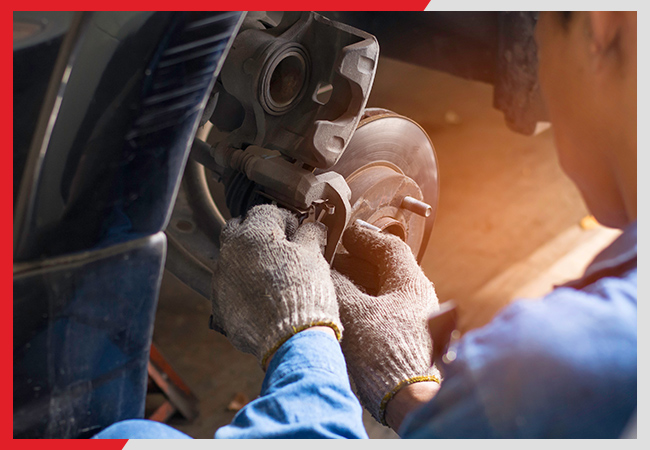Brake Repair

Expert Brake Repair Service in Campbellsport, WI
Probably the most crucial safety feature on your car is the brakes. If you’ve ever had your brakes fail partially, you’ll understand why you don’t want to go through that again. You and your passengers can be kept safe by twice-yearly brake inspections for wear and damage. Furthermore, by spotting any damage early on, it will also enable you to save money.
Experience top-notch Brake Repair Service at Heinecke Auto Repair in Campbellsport, WI. Our skilled technicians ensure your safety on the road with reliable brake solutions. Schedule an appointment now for peace of mind and worry-free driving.
Components Of The Brake System That May Fail
When the brake fluid is not being delivered to the brakes through the brake lines, it is stored in the master cylinder, the brain of the vehicle’s braking system. The brake pads will be damaged if braking fluid leaks because the master cylinder is worn, brake lines are clogged, or the brake lines are broken.
The brake fluid itself may get soiled or polluted when it absorbs moisture that promotes rust and gathers other debris, or it may degrade due to excessive heat. While dirty brake fluid may be brown or even black, clean brake fluid is either clear or slightly yellow. Internal damage to ABS brake systems can be caused by old or unclean brake fluid.
A combination valve, which includes a metering valve with a proportioning valve, is used to link the brake lines to the master cylinder. In order to ensure that both sets of brakes are applied simultaneously, it controls the pressure on the front and rear wheels. The wheels could lock up due to a broken combination valve.
Understanding Brake Components: Pads, Shoes, Disc Rotors, and Drums
Metal makes up the disc rotors and drums they push against, while ceramic, metal, or organic materials can be used to make brake pads and shoes. Because they need to create friction to stop the car, the pads and shoes gradually deteriorate over time and may eventually disappear entirely, causing the metal of the calipers and cylinders to grind against the rotors and drums and cause damage. Some brake pads have a metal strip attached that, when the pad gets too worn, emits a warning whistle. However, this strip only emits a whistle when the car is moving and the brakes are not applied.